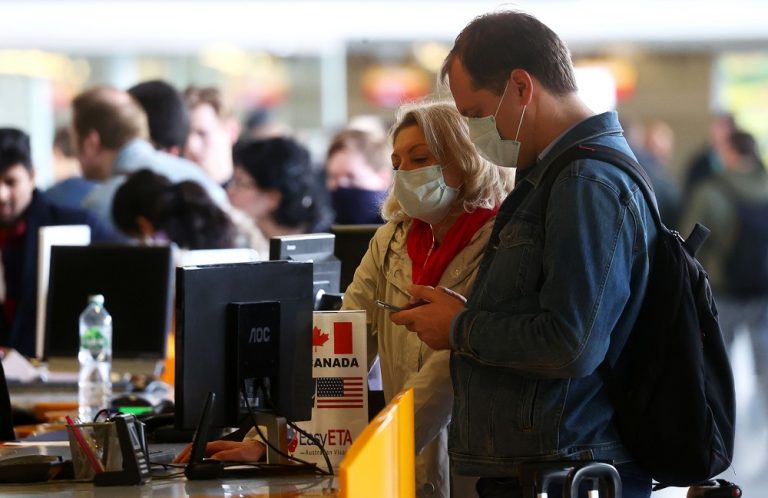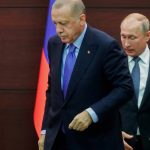The coronavirus topic is used in the information war with the aim to discredit the EU health system. The campaign targets is to aggravate the health crisis in Western European countries, in particular, to undermine public confidence in their national health systems and, thereby, prevent from reacting effectively to the disease outbreak.
The European External Action Service representatives state that Russian media are trying to escalate doubts, panic and fear in Europe by conducting a coronavirus disinformation campaign to destabilize the situation and trigger disagreements between the allies.
Since January 22, the European Union has found nearly 80 COVID-19 fakes. The campaign is carried out by Russian fake social networks accounts that previously have spread news messages about the situation in Syria and the “yellow vests” protests in France. The users of these accounts publish fake news in English, German, Spanish, Italian and French.
The spread ‘controversial, confusing and malicious messages’ are intended to prevent EU leaders from coordinating efforts to fight against COVID-19 pandemic effectively. The Russian campaign seeks to show chaos and lack of unity in the EU, NATO and the US, thereby, proving ineffectiveness of the collective security policy.
The Russian government is using all possible means to turn the coronavirus crisis in its favor as part of the information war against the West. In particular, the Kremlin intends to use COVID-19 caused crisis to lobby for lifting Western European countries’ sanctions imposed against Russia after the annexation of Crimea and the partial occupation of Donbass. It believes that the economic crisis that will accompany the pandemic outbreak will be a reasonable cause to lift the sanctions. Although the calculations show that even after 1.5 months the Russian economic situation will not be able to influence positively on the EU economy in case of lifting of sanctions.
Putin has repeatedly stated that Russia needs new security architecture in Europe. While European countries are launching restrictions to stop coronavirus spreading he might see this period of time as an opportunity to implement his plans.
Traditionally, Moscow takes every opportunity to weaken Europe. Particularly, the 1973 oil crisis and the 2008 financial crisis should be mentioned here.
It is worth noting that Russia once again uses the conspiracy theory in COVID-19 context. For example, in some local talk shows and ‘expert’ comments one can hear theories that the US government invented the coronavirus and is testing it as a biological weapon. Moreover, the topic of Zionist conspiracy, popular among Russians, is also widely spread in the information space. In this direction, Russian propagandists co-work with their Iranian partners.
A conspiracy theory is an integral part of the ideology of Russia as the heir to the communist (left-wing) ideology whose political identity implies the existence of ‘an enemy’. According to Richard Hofstadter, an American historian, the conspiracy theory is a reflection of the paranoid style of thinking that David de Batto referred to in his analysis for the lansinginstitute.org. As Hofstadter says a conspiracy theorist is involved in an ongoing battle with a powerful and mistake-free enemy.
Iranian propaganda media outlets would like you to believe, without evidence, that the emerging public health crisis comes from U.S. biological weapons.
Moreover, tender purchases data within 2015-2020 show that Russian military research institutes, such as the 48 Scientific Research Institute of the Ministry of Defense and the Federal enterprise ‘Vector’ engaged in the biological weapons development in the former Soviet Union times, were actively involved in flu and pneumonia related developments. Introduction of coronavirus vaccine and medicine by Russian researches will prove the Russian origin of COVID-19.
• Thus, COVID-19 pandemic crisis in the context of the Russian political model gives the Kremlin, in its opinion, advantages and opportunities. Despite the pandemic outbreak in the countries of Western and Eastern Europe, the Kremlin remained speechless and took no regional measures to quarantine and get the population ready for the epidemic. Such inexplicable and irresponsible behavior towards its countrymen is explained by political opportunities opening up for the Kremlin, such as:
• minimize the negative effect caused by the constitutional reform zeroing Putin’s presidential terms that gives him an opportunity to keep his presidency until 2036.
• reduce the burden on the pension fund by canceling after the epidemic end the decision to raise the retiring age that made poor the Russian government’s rating.
• use the crisis as a chance to unite and mobilize the Russian population that has started showing its fatigue with Putin’s rule.
• lift anti-Russian sanctions and cross violations of international law – annexed Crimea, the occupation of Donbass, and Russian intelligence special operations in Europe (chemical weapons in Salisbury, hacking in the Netherlands, murder in Berlin and other episodes) – out of the agenda.




